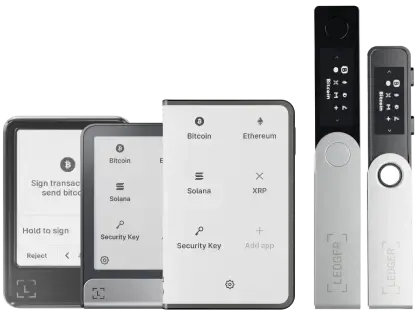Compare Ledger signers
Generate and Store your Seed Phrase Offline
Securing your digital assets starts by making sure your crypto wallet generates your seed phrase offline from the very beginning. When the seed phrase is shown to you, make sure to write it down, store it in a safe place, offline, far from hackers’ reach, natural disasters and thieves. You will need it to restore access to your crypto if your wallet is ever lost, stolen or damaged, or if you want to upgrade to a new wallet. Never share it with anyone.

























































